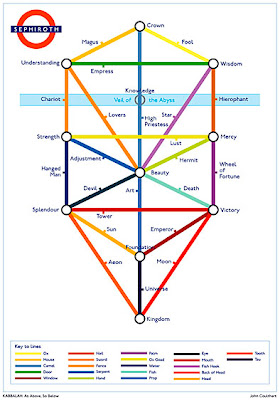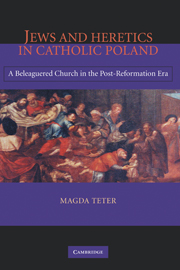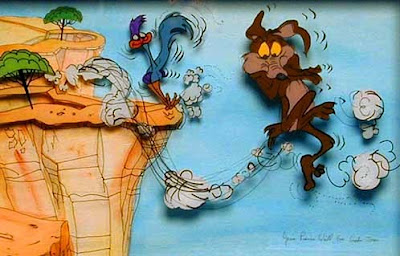Aphorism
Stanisław Jerzy Lec (6 March 1909 – 7 May 1966) (born baron Stanisław Jerzy de Tusch-Letz) was a Polish poet and aphorist of Polish and Jewish noble origin. Often mentioned among the greatest writers of post-WW2 Poland. One of the most influential aphorists on the 20th century.
He was born on March 6, 1909 in Lviv (then Lemberg, Austro-Hungarian Empire), the son of the baron Benon de Tusch-Letz and Adela Safrin. His well-educated parents were noted Jewish eccentrics who converted to Protestantism in a Catholic country.
How can you not become an aphorist when your father gives himself the name "Letz"?!









The storyteller of our time, as in any other time, must be an entertainer of the spirit in the full sense of the word, not just a preacher of social and political ideals. There is no paradise for bored readers and no excuse for tedious literature that does not intrigue the reader, uplift his spirit, give him the joy and the escape that true art always grants.
Nevertheless, it is also true that the serious writer of our time must be deeply concerned about the problems of his generation. He cannot but see that the power of religion, especially belief in revelation, is weaker today than it was in any other epoch in human history. More and more children grow up without faith in God, without belief in reward and punishment, in the immortality of the soul and even in the validity of ethics.
The genuine writer cannot ignore the fact that the family is losing its spiritual foundation. All the dismal prophecies of Oswald Spengler have become realities since World War II. No technological achievements can mitigate the disappointment of modern man, his loneliness, his feeling of inferiority, and his fear of war, revolution and terror. Not only has our generation lost faith in Providence but also in man himself, in his institutions and often in those who are nearest to him.
In their despair a number of those who no longer have confidence in the leadership of our society look up to the writer, the master of words. They hope again hope that the man of talent and sensitivity can perhaps rescue civilization. Maybe there is a spark of the prophet in the artist after all.
As the son of a people who received the worst blows that human madness can inflict, I must brood about the forthcoming dangers. I have many times resigned myself to never finding a true way out. But a new hope always emerges telling me that it is not yet too late for all of us to take stock and make a decision.
I was brought up to believe in a free will. Although I came to doubt all revelation, I can never accept the idea that the universe is a physical or chemical accident, a result of blind evolution. Even though I learned to recognize the lies, cliches and idolatries of the human mind, I still cling to some truths which I think all of us might accept some day.
There must be a way for a man to attain all possible pleasures, all the powers and knowledge that nature can grant him, and still serve God--a God who speaks in deeds, not in words, and whose vocabulary is the cosmos.
I am not ashamed to admit that I belong to those who fantasize that literature is capable of bringing new horizons and new perspectives--philosophical, religious, esthetical and even social. In the history of old Jewish literature there was never any basic difference between the poet and the prophet. Our ancient poetry often became law and a way of life.
Some of my cronies in the cafeteria near The Jewish Daily Forward in New York call me a pessimist and a decadent, but there is always a background of faith behind resignation. I found comfort in such pessimists and decadents as Baudelaire, Verlaine, Edgar Allan Poe, and Strindberg.
My interest in psychic research made me find solace in such mystics as your Swedenborg and in our own Rabbi Nachman Brazlaver, as well as in a great poet of my time, my friend Aaron Zeitlin, who died a few years ago and left a spiritual inheritance of high quality, most of it in Yiddish.
The pessimism of the creative person is not decadence but a mighty passion for redemption of man. While the poet entertains he continues to search for eternal truths, for the essence of being. In his own fashion he tries to solve the riddle of time and change, to find an answer to suffering, to reveal love in the very abyss of cruelty and injustice.
Strange as these words may sound I often play with the idea that when all the social theories collapse and wars and revolutions leave humanity in utter gloom, the poet--whom Plato banned from his Republic--may rise up to save us all.
[YIDDISH TEXT]
The high honor bestowed upon me by the Swedish Academy is also a recognition of the Yiddish language--a language of exile, without a land, without frontiers, not supported by any government, a language which possesses no words for weapons, ammunition, military exercises, war tactics, a language that was despised by both gentiles and emancipated Jews.
The truth is that what the great religions preached, the Yiddish-speaking people of the ghettos practiced day in and day out. They were the people of the book in the truest sense of the word. They knew of no greater joy that the study of man and human relations, which they called Torah, Talmud, Musar, cabala.
The ghetto was not only a place of refuge for a persecuted minority but a great experiment in peace, in self-discipline and in humanism. As such it still exists and refuses to give up in spite of all the brutality that surrounds it. I was brought up among those people. My father's home on Krochmalna Street in Warsaw was a study house, a court of justice, a house of prayer, of storytelling, as well as a place for weddings and Hasidic banquets.
As a child I had heard from my older brother and master, I.J. Singer, who later wrote ''The Brothers Ashkenazi,'' all the arguments that the rationalists from Spinoza to Max Nordau brought out against religion.
I have heard from my father and mother all the answers that faith in God could offer to those who doubt and search for the truth. In our home and in many other homes the eternal questions were more actual than the latest news in the Yiddish newspaper. In spite of all the disenchantments and all my skepticism I believe that the nations can learn much from those Jews, their way of thinking, their way of bringing up children, their finding happiness where others see nothing but misery and humiliation. To me the Yiddish language and the conduct of those who spoke it are identical.
One can find in the Yiddish tongue and in the Yiddish spirit expressions of pious joy, lust for life, longing for the Messiah, patience and deep appreciation of human individuality. There is a quiet humor in Yiddish and a gratitude for every day of life, every crumb of success, each encounter of love.
The Yiddish mentality is not haughty. It does not take victory for granted. It does not demand and command but it muddles through, sneaks by, smuggles itself amidst the powers of destruction, knowing somewhere that God's plan for creation is still at the very beginning.
There are some who call Yiddish a dead language, but so was Hebrew called for 2,000 years. It has been revived in our time in a most remarkable, almost miraculous way. Aramaic was certainly a dead language for centuries but then it brought to light the Zohar, a work of mysticism of sublime value. It is a fact that the classics of Yiddish literature are also the classics of the modern Hebrew literature.
Yiddish has not yet said its last word. It contains treasures that have not been revealed to the eyes of the world. It was the tongue of martyrs and saints, of dreamers and cabalists--rich in humor and in memories that mankind may never forget. In a figurative way, Yiddish is the wise and humble language of us all, the idiom of the frightened and hopeful humanity.